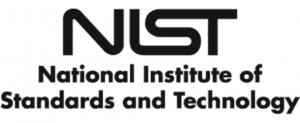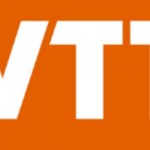Quantum News Briefs December 3: Equal1 Announces Major Quantum Computing Breakthrough with New Performance Tests • General Dynamics Information Technology Joins NIST’s Post-Quantum Cryptography Consortium • Infleqtion Secures $11M DoD APFIT Award to Advance Quantum Timing for Defense • IonQ Unveils New Enterprise-Grade Quantum OS and Hybrid Services Suite •

Equal1 Announces Major Quantum Computing Breakthrough with New Performance Tests
 Equal1, a global leader in silicon powered quantum computing, has today announced a major breakthrough for the quantum computing industry, demonstrating both world-leading performance for a silicon qubit array and the most complex quantum controller chip developed to date.
Equal1, a global leader in silicon powered quantum computing, has today announced a major breakthrough for the quantum computing industry, demonstrating both world-leading performance for a silicon qubit array and the most complex quantum controller chip developed to date.
Together, these results pave the way for the next phase of quantum computing and demonstrate the fastest way to scaling is to leverage existing silicon infrastructure.
World leading metrics for a silicon qubit array:
–Single qubit gate with fidelity of 99.4% and gate speed of 84ns
–Two-qubit gate with fidelity of 98.4% and gate speed of 72ns
These results were achieved on a 6-qubit array fabricated on a silicon germanium (SiGe) CMOS compatible process. The result demonstrates a key roadmap milestone and proof point required for powerful, full-scale, error-corrected quantum computer processors manufactured by existing silicon chip foundries.
Equal1 also announced the world’s first multi-tile Quantum Controller Chip demonstrated in Equal1’s UnityQ Quantum-System-on-Chip platform.
The chip operates at a remarkable 300 millikelvin and is powered by Arm Cortex cores. This groundbreaking technology will enable scaling to millions of orchestrated qubits on a single chip, revolutionising quantum computing scalability.
EEqual1’s controller chip also has a patented AI enabled Qubit Adaptive Error Correction, tuned for each tile under the support and control of the Arm Cortex processor, by British semiconductor and software design company Arm.
More detail on these results will be published in the journal ArXiv today.
General Dynamics Information Technology Joins NIST’s Post-Quantum Cryptography Consortium
 General Dynamics Information Technology (GDIT), a business unit of General Dynamics, announced today that it has joined the National Institute of Standards and Technology’s (NIST) Migration to Post-Quantum Cryptography (PQC) Building Block Consortium. As the first systems integrator to join this consortium, GDIT will work alongside leading industry, government and academic organizations from around the world to address the threats posed by quantum computing.
General Dynamics Information Technology (GDIT), a business unit of General Dynamics, announced today that it has joined the National Institute of Standards and Technology’s (NIST) Migration to Post-Quantum Cryptography (PQC) Building Block Consortium. As the first systems integrator to join this consortium, GDIT will work alongside leading industry, government and academic organizations from around the world to address the threats posed by quantum computing.
The rise of quantum computing threatens to compromise the encryption methods currently used to protect our most sensitive data and systems widely used today. In response, NIST has spearheaded efforts to develop new quantum-resistant algorithms and technologies. The consortium will focus on developing practical solutions and tools that help organizations migrate to PQC, ensuring that critical digital information remains protected against future quantum-enabled threats.
As a consortium member, GDIT will bring decades of expertise in managing and securing large-scale cryptographic systems, providing critical insights across the entire PQC lifecycle – from risk assessment and system discovery to migration and long-term management. GDIT’s Tidal PQC Digital Accelerator will play a pivotal role in helping organizations identify vulnerabilities, prioritize cryptographic risks and accelerate the adoption of post-quantum cryptographic solutions. The company will also leverage its extensive network of cyber partnerships with hardware and software vendors to align industry capabilities with NIST’s standards for PQC adoption.
Infleqtion Secures $11M DoD APFIT Award to Advance Quantum Timing for Defense

Infleqtion has announced its receipt of $11 million in funding from the U.S. Department of Defense (DoD) as part of the latest tranche of awards under the Accelerate the Procurement and Fielding of Innovative Technologies (APFIT) program.
This funding supports Infleqtion’s work on the Rack Mounted Optical Clocks project, with Tiqker at the forefront, driving advancements in precision timing solutions—critical for enhancing military operational readiness, secure communications, and mission success in contested environments.
The Rack Mounted Optical Clocks project, which received a total of $22 million through the APFIT program, leverages cutting-edge quantum technology to deliver highly accurate, stable, and resilient timekeeping solutions. These next-generation optical clocks are designed to overcome the limitations of legacy time and frequency systems, offering unprecedented performance even in the most demanding environments.
Tiqker, Infleqtion’s Rack Mounted Optical Clock, will support a range of defense areas, including assured communications, GPS-denied navigation, anti-spoof timing and synchronization for emerging technologies like one-way attack drone protection. Tiqker leverages rapid optical transitions between quantum states of atoms, offering a dramatic increase in accuracy and stability compared to alternatives. Designed for seamless integration into defense systems, Tiqker provides the performance required for complex operations in contested environments.
IonQ Unveils New Enterprise-Grade Quantum OS and Hybrid Services Suite
 IonQ (NYSE: IONQ) has announced the launch of its quantum operating system, now called IonQ Quantum OS, and a collection of new capabilities named IonQ Hybrid Services suite. These technologies will greatly advance performance and utility of quantum computing for enterprise customers.
IonQ (NYSE: IONQ) has announced the launch of its quantum operating system, now called IonQ Quantum OS, and a collection of new capabilities named IonQ Hybrid Services suite. These technologies will greatly advance performance and utility of quantum computing for enterprise customers.
IonQ Quantum OS is a nearly ground-up rewrite of IonQ’s original quantum operating system. Designed and built with a flexible and modular architecture, it is designed to scale and adapt with IonQ’s hybrid quantum computing ecosystem and power IonQ’s current and future flagship quantum computers, including IonQ Forte and IonQ Forte Enterprise.
Designed for improved performance, IonQ Quantum OS dramatically improves time-to-solution, including:
- An average reduction of over 50 percent in on-system classical overhead (compared to identical workloads run on IonQ Forte before the improvements were deployed).
- An 85 percent reduction in cloud and network overhead of workloads submitted through the IonQ Cloud.
- Up to 100x improved accuracy in an expanded error mitigation and compilation suite.
- Enhanced calibration, automation, and control software and firmware to optimize qubit and gate performance and adjust for systemic drifts, resulting in better algorithmic performance.



















